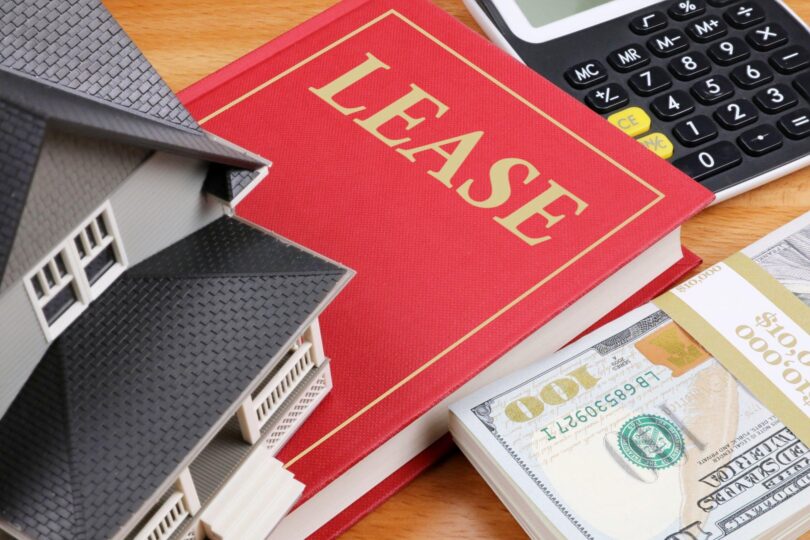Leasing a property is one of the most important decisions a person or business can make. Making sure you understand your rights and responsibilities when leasing a property is critical to ensuring you have a successful and positive experience. This article will cover the legal ins-and-outs of what rights and responsibilities a tenant and landlord have when it comes to real estate leases.
-Understanding Real Estate Leases
Are you grappling with understanding real estate leases? Worry no more. This post aims to outline the rights & responsibilities embedded in a real estate lease agreement.
- Rights of a Leaseholder
- The right to enjoy the property and occupy it exclusively for the agreed length
- Maintain and repair the property in a good condition
- Take legal proceedings against any person who interferes or trespasses on the property
- Responsibilities of a Leaseholder
- Make timely rent payments
- Comply with all laws regarding the use and occupancy of the leased property
- Do not perform any illegal, detrimental or injurious activities on the property
The lease agreement outlines both the rights and obligations of the lessee and the lessor. A well-drafted agreement helps to resolve potential disputes before they occur. It is vital to ensure that the agreement is in compliance with the applicable state laws. A real estate attorney can help to negotiate and draft an agreement that is beneficial to both parties.
-What are Your Rights as a Tenant?
Rights of tenants:
- Tenants have the right to live in a safe, clean, and healthy dwelling.
- Tenants have the right to fair and reasonable terms in the lease agreement.
- Tenants have the right to privacy in their leased space.
- Tenants have the right to a habitable dwelling that meets all public health and safety codes.
- Tenants have the right to quiet enjoyment of their leased space with limited disturbance from the landlord.
- Tenants have the right to a refund of any security deposit paid.
Responsibilities of tenants:
- Tenants have the responsibility to pay the rent on time as outlined in the lease agreement.
- Tenants have the responsibility to maintain the leased space in good repair and keep it clean.
- Tenants have the responsibility to fulfill all other terms of the lease agreement.
- Tenants have the responsibility to report any repairs needed to the landlord.
- Tenants have the responsibility to return the property in the same condition when the lease period began.
-What are Your Responsibilities as a Tenant?
When a tenant signs a real estate lease, they must understand their own rights and responsibilities. As a tenant, there are certain legal and financial responsibilities that must be upheld. This article outlines the main responsibilities a tenant needs to be aware of.
- Rent Payment: As a tenant, you are responsible for paying rent on time, usually on a monthly basis. Rent should be paid according to the lease agreement.
- Utility and Service Payments: Depending on the lease agreement, tenants may be responsible for other payments such as utilities, telecommunications, and insurance. It is important to read the lease agreement carefully to understand who is responsible for making these payments.
- Property Damage: Tenants are responsible for taking care of the rented property. Damage to the rented property should be minimized and the tenant should keep the property clean and tidy at all times. It is important that any damage to the property is reported to the landlord as soon as possible.
- Maintenance: Tenants should keep all appliances and fixtures in good condition and make sure all locks are in working order. If a tenant notices any maintenance issues, they should notify the landlord or property manager so they can repair or replace the damaged items in a timely manner.
- Seguridad: Tenants should always secure the rented property, including keeping the doors locked and windows closed. Tenants should also install smoke alarms and carbon monoxide detectors and perform regular maintenance on them.
- Obey the Law: Tenants are obligated to obey all federal, state, and local laws. This includes understanding and following all laws with regard to the rental property, such as sound ordinances or fire safety regulations.
-Best Practices for Executing a Lease
Real estate leases are legally binding documents both parties should understand before signing. As a lessor, you need to be familiar with your rights and responsibilities to ensure you’re adequately protecting yourself and your investments. So what are the best practices for executing a lease?
- Comprehensive Lease Agreement. The most important step in leasing is having a comprehensive lease agreement. The agreement should clearly outline all rules and regulations such as the lease term, rental amount, security deposit, and any other relevant information that would be necessary for the tenant.
- Thorough Background Check. Thoroughly screening potential tenants is the best defense against financial losses. Conducting a background check can reveal any potential red flags, such as credit issues, criminal background, and rental history.
- Regular Inspections. Performing regular inspections allows you to assess the condition of the rental property and determine if any repairs or modifications are needed. Doing so can also help you detect any unauthorized tenants or activities that may be occurring.
- Proper Documentation. It’s important to properly document everything in writing. This includes the lease agreement, deposit and rent payments, any repairs or modifications made, and any other transactions between you and the tenant.
- Compliance with Laws. It’s important to stay up-to-date on all laws relating to real estate, including those related to leasing agreements. You should also familiarize yourself with any local or state regulations that could affect the tenancy.
Following these best practices for executing a lease will help ensure the process goes smoothly and you, as the lessor, are adequately protected. A real estate lawyer or attorney can provide further advice if needed.
-Termination of a Lease: Strategies & Considerations
- When a tenant or landlord chooses to terminate their lease agreement early, it’s important to understand the rights and responsibilities of both parties.
- A landlord typically has the right to legally require the tenant to move out of the property at the end of the lease. They also may enlist the help of a judge to enforce the agreement and hold the tenant accountable for payments.
- Tenants should become familiar with the termination terms of the lease agreement before entering into it. Some agreements may require them to give notice up to 60 days prior to vacating the premises.
- Strategies & Considerations:
- Before terminating a lease agreement, tenants should gain an understanding of their rights and obligations under applicable laws.
- Tenants may be able to negotiate with their landlord to determine an earlier termination date. This could include resolving outstanding issues related to damages or rent payments.
- If tenants are not able to negotiate a lease cancellation, they may be forced to pay the remainder of the lease period in order to walk away from the agreement.
- Tenants may be on the hook for any losses experienced by the landlord due to the loss of a tenant. That could include marketing costs for finding a new tenant as well as a percentage of lost rent.
- In some cases, tenants may be able to find another tenant to take over the lease and transfer the agreement. This can be a great way to avoid any penalties or lost payments.
The end of a lease agreement does not necessarily mean the end of a relationship between tenant and landlord. It’s important to ensure that both parties are aware of their rights and responsibilities in order to ensure that the termination goes as smoothly as possible. Whether or not a tenant is able to negotiate a lease cancellation, it’s important to review the terms of the agreement ahead of time to provide the best possible outcome for both parties.
-Maintaining Healthy Relationships with Landlords & Tenants
When it comes to understanding real estate leases, it’s important to be aware of both the rights and responsibilities of both landlords and tenants. By having a clear understanding of what each party is responsible for, maintaining healthy relationships with both parties is much easier.
Rights of Tenants
- The right to peaceful and quiet enjoyment of their property.
- The right to a habitable property, i.e., one that is structurally sound and free from health and safety hazards.
- The right to privacy.
- The right to considerate and respectful treatment from their landlords.
Rights of Landlords
- The right to proper maintenance of the property in good living conditions.
- The right to receive fair market value from the tenant.
- The right to possession of their property when the tenant moves.
- The right to a minimum period of notice before the tenant moves.
Responsibilities of Tenants
- Pay rent on time.
- Respect the property of the landlord.
- Abide by all lease terms and conditions.
- Respond promptly to requests by the landlord.
Responsibilities of Landlords
- Maintain the property in good living conditions.
- Treat tenants with respect and courtesy.
- Be aware of local rental laws.
- Abide by all lease terms and conditions.
By having an understanding of both the rights and responsibilities of both parties involved in a real estate lease, it will be much easier for landlords and tenants to maintain a good relationship. This, in turn, will create a positive environment for both parties.
-Advice for Professionals Involved in Leasing Real Estate
Leasing real estate is a complex process and involves a range of rights and responsibilities. When it comes to navigating this process, professionals involved in leasing real estate should consider the following advice:
- Understand all the laws: As a professional involved in real estate leasing, it is absolutely imperative to be well-versed and up to date on all the applicable laws. This includes local, state, and federal legislation as well as industry trends.
- Protect all parties’ interests: Professionals involved in real estate leasing should similarly look out for the interests of all parties involved, including ensuring that all tenants are treated fairly. This means being attentive to the specific details and requirements of the lease agreement.
- Negotiate proactively: The negotiation process for a real estate lease is highly complex. Professionals should keep in mind what they are looking to get out of the contract, and use a proactive negotiation style to ensure they get what they need.
- Ensure compliance: Any real estate lease agreement should also include an explicit understanding of the rights and responsibilities of all parties involved. Professionals should use this understanding to ensure compliance with all aspects of the contract and to protect all involved.
- Hire an attorney: Finally, it is a good idea to have an attorney review any real estate leasing contracts. An attorney can provide valuable insight to ensure that all parties involved are properly protected and that any potential risks are addressed.
Professionals involved in real estate leasing should keep the above advice in mind as they navigate this complex process. By doing so, they can ensure that all parties involved are properly protected and that the best interests of all parties are taken into account. Secure a piece of the real estate pie for yourself with a fair and thorough understanding of leases. Armed with the rights and responsibilities of being a tenant, you can now confidently enter the market and take control of your future. Go forth and lease!








